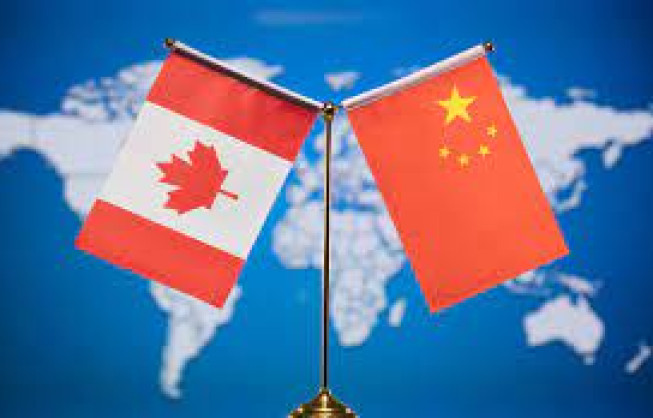Canada orders China to divest from country’s mining companies
Canada has ordered China to immediately sell its holdings in three Canadian mining companies, as the need for investments in the extraction of critical minerals clashes with growing concerns over national security.
On Wednesday Canada’s industry minister, François-Philippe Champagne, said three Chinese companies would be required to divest from junior mining companies.
“While Canada continues to welcome foreign direct investment, we will act decisively when investments threaten our national security and our critical minerals supply chains, both at home and abroad,” Champagne said in a written statement.
The order comes after a “multi-step” review by Canada’s national security and intelligence agencies, which determined that the three companies must leave the Canadian mining industry on national security grounds.
Critical minerals and metals include lithium, cadmium, nickel and cobalt. They are essential for clean energy technologies, including turbines and electric cars and solar panels. They are also a necessary part of laptop computers and rechargeable batteries.
In recent years, China has become the largest refiner and processor of critical minerals, building an extensive supply chain that relies on overseas mines for raw materials.
Canada has extensive, largely undeveloped deposits of nickel and cobalt and Chinese companies have made up a growing share of foreign investment in the industry.
Earlier this year, the Canadian mining company Neo Lithium Corp was taken over by the Chinese state-controlled firm Zijin Mining Group Co, a move that prompted parliamentary hearings into the possible national security threats posed by increased investment by China.
According to Champagne’s directive, Sinomine (Hong Kong) Rare Metals Resources Co Ltd, Chengze Lithium International Ltd and Zangge Mining Investment (Chengdu) Co Ltd must sell their stakes in Power Metals Corp, Lithium Chile Inc and Ultra Lithium Inc.
The move comes a week after Ottawa tightened rules on foreign investments in the critical mineral sector. Champaign said investments by state-owned firms will only be approved on “an exceptional basis” and will apply not only to takeovers, but also small investments.
Amid concerns over China’s growing dominance, nations have banded together. Earlier this year, countries including Britain, Canada, the US and Australia established a global partnership to secure access to critical minerals.
Relations between China and Canada have remained tense since the arrests of the Huawei executive Meng Wenzhou, and the Canadian businessmen Michael Kovrig and Michael Spavor in 2018. Recent reports that China is operating covert police stations inside Canada, prompting an investigation by federal police, has further chilled relations.
China pushed back on Thursday, calling Canada’s move a breach of cooperation between the two nations and an attempt to damage global supply chains.
“China urges Canada to stop the unreasonably targeting Chinese companies [in Canada] and provide [the companies] with a fair, impartial and non-discriminatory business environment,” a Chinese foreign ministry spokesperson, Zhao Lijian, told reporters, adding Beijing would defend the rights and interests of Chinese companies aboard.
… we have a small favour to ask. Millions are turning to the Guardian for open, independent, quality news every day, and readers in 180 countries around the world now support us financially.
We believe everyone deserves access to information that’s grounded in science and truth, and analysis rooted in authority and integrity. That’s why we made a different choice: to keep our reporting open for all readers, regardless of where they live or what they can afford to pay. This means more people can be better informed, united, and inspired to take meaningful action.
In these perilous times, a truth-seeking global news organisation like the Guardian is essential. We have no shareholders or billionaire owner, meaning our journalism is free from commercial and political influence – this makes us different. When it’s never been more important, our independence allows us to fearlessly investigate, challenge and expose those in power.






نظر: